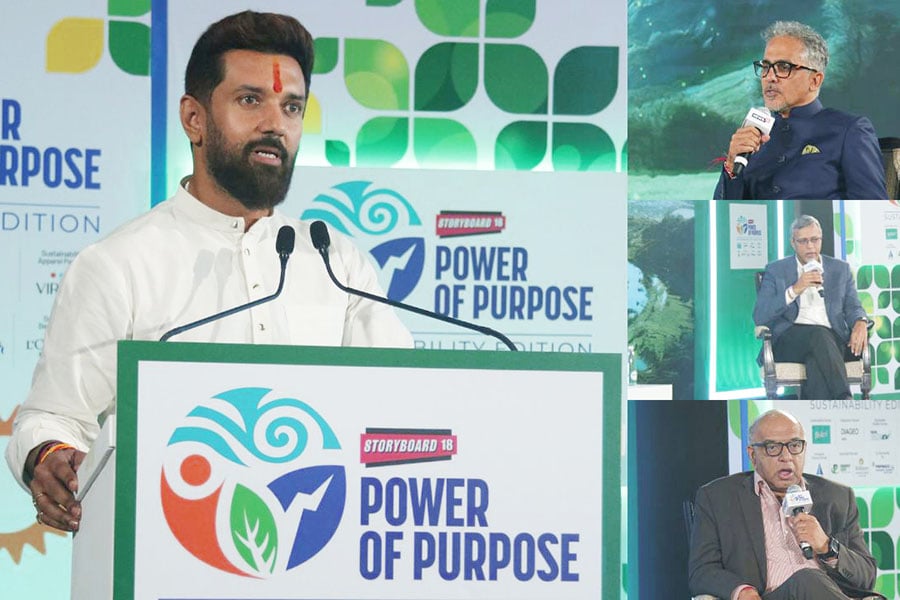Policymakers, industry leaders map path to a sustainable future at Storyboard18's Power of Purpose: Sustainability edition
Held on October 18 in New Delhi, the event saw discussions on purpose and sustainability from the likes of Union Minister Chirag Paswan, Rohit Kapoor of Swiggy, Sanjeev Bikhchandani of InfoEdge, and Alok Lall, COO, Microsoft India and South Asia
 A gathering of purpose-driven minds at Storyboard18 and Network18 Group's Power of Purpose: Sustainability Edition, impactful stories, and pivotal conversations set the agenda for a sustainable future. The evening was graced by prominent industry leaders and key policymakers. (Clockwise: Rohit Kapoor, Alok Lall, Sanjeev Bikhchandani and Chirag Paswan)
A gathering of purpose-driven minds at Storyboard18 and Network18 Group's Power of Purpose: Sustainability Edition, impactful stories, and pivotal conversations set the agenda for a sustainable future. The evening was graced by prominent industry leaders and key policymakers. (Clockwise: Rohit Kapoor, Alok Lall, Sanjeev Bikhchandani and Chirag Paswan)
The capital witnessed a gathering of purpose-driven minds debating how the young generation and business leaders are driving the sustainability efforts in the country. The Storyboard18 and Network18 Group's Power of Purpose: Sustainability Edition held in New Delhi was graced by prominent industry leaders.From policymakers and business leaders to individuals leading from the frontlines, they all came together to share impactful stories, and pivotal conversations to set the agenda for a sustainable future, on October 18.
Leading the dialogues at the edition were Union Minister Chirag Paswan, Rohit Kapoor, CEO - Food Marketplace, Swiggy, Angelo George, CEO, Bisleri International and Sanjeev Bikhchandani, Co-founder & Executive Vice Chairman, InfoEdge, Alok Lall, COO, Microsoft India and South Asia, and Ramnath Vaidyanthan, AVP & Head Of Sustainability, Godrej Industries, among others.
The event was kicked off with the opening remarks from the Minister of Food Processing Industries, Chirag Paswan.
Paswan shared his dream of having more Indian and homegrown brands in supermarkets, globally and how the country needs to grow with sustainability to become a self-reliant nation.
In his keynote address, Paswan went on to share that the country has enough abundance to fulfil global food demand. He emphasised that "as we aim to grow food processing sector, we need to ensure that it doesn't negatively impact the environment. Hence, we are ensuring not only to minimse the wastage but also add value to the sector.”

















